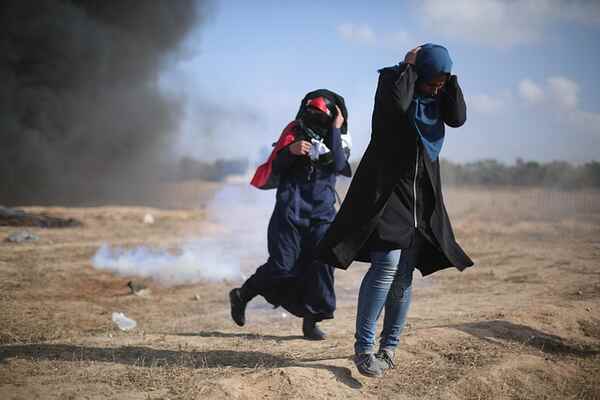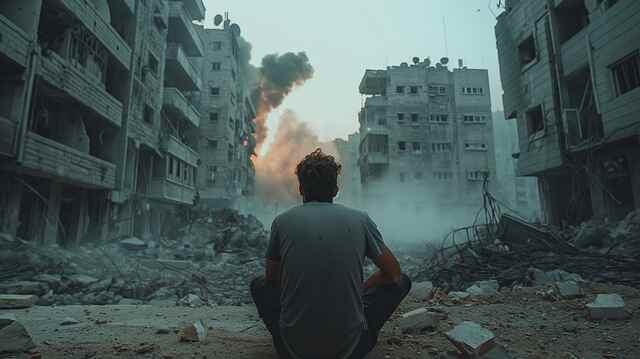Starving Gaza Is More Than a Headline — It’s a Humanitarian Catastrophe
“Starving Gaza” is not simply a newsflash. It’s the grim reality that millions of people endure daily under one of the world’s most punishing blockades. The Gaza Strip—a narrow, densely populated piece of land—has become synonymous with suffering. Years of military restrictions have cut off access to basic necessities like food, water, medicine, and power.
While much of the world watches in silence or politicizes the suffering, civilians pay the highest price. In addition, they don’t just go hungry—they lose children to malnutrition, watch hospitals collapse, and see futures destroyed by hunger.
However, this blog post unpacks what starving Gaza really means—through firsthand stories, hard statistics, and a breakdown of the policies behind this modern tragedy. It also explains how you can become a part of the solution.
Starving Gaza: The Brutal Background Behind Gaza’s Suffering
How the Blockade Created a Starving Gaza
In fact, since 2007, Israel and Egypt have imposed a severe land, air, and sea blockade on Gaza. Although security concerns were cited, the result has been a near-total isolation of more than two million Palestinians. Goods like fuel, medicine, and food are tightly restricted. The economy collapsed. Dependency on humanitarian aid skyrocketed.
Moreover, the United Nations estimates that more than 60% of Gaza’s population is food insecure. Entire families survive on bread and tea. And even that isn’t guaranteed.
Moreover, transitioning from independence to total dependency hasn’t just broken Gaza’s economy—it has broken its spirit.
Daily Hunger, Hour by Hour
Why the Phrase “Starving Gaza” Is More Accurate Than Ever
In fact, Starving Gaza is not just a crisis—it’s a routine. Also, mothers skipping meals so their children can eat. Kids fainting in classrooms due to hunger. However, men walking for hours just to find aid trucks that may or may not arrive. These are not occasional scenes—they are everyday realities.
Additionally, people aren’t just short of calories; they are short of hope. Malnutrition leads to disease, weakened immunity, stunted growth in children, and psychological trauma that scars for life. Starving Gaza is a wound that keeps bleeding.
The Toll on Children and Infants
Starving Gaza Has Stunted an Entire Generation
Children bear the brunt of the crisis. According to UNICEF, nearly 50% of Gaza’s children suffer from anemia due to poor diets. Malnutrition leads to developmental delays, permanent cognitive impairments, and weakened immune systems.
Many children in Gaza do not know the taste of fruit or meat. Some babies are born healthy but soon waste away due to lack of milk or formula. One such story is that of Siwar Barbaq, an 11-month-old who now weighs less than half the normal weight for her age.
This is what starving Gaza looks like in real life. It’s not abstract—it’s painfully specific.
Recommended by Nova News:
When Hospitals Run on Empty
How Starving Gaza Paralyzes the Healthcare System
Hospitals in Gaza are barely functioning. Many lack basic medical supplies like IV fluids, antibiotics, and surgical gloves. Fuel shortages shut down generators. Power outages delay surgeries. Doctors work by flashlight.
Dr. Ahmed al-Farra, who heads the pediatric ward at Nasser Hospital, treats malnourished children daily. Yet even he struggles to find food for his own family. The crisis affects everyone, from the patient to the physician.
When the health system collapses, starving Gaza turns from a humanitarian emergency into a public health disaster.
Starving Gaza: Real Stories That Reveal the Truth
Fatima’s Fight for Food in a Starving Gaza
Fatima, a mother of four, shelters in a makeshift tent with no income. She says, “Sometimes we only have bread and water. My kids cry from hunger, and I have no way to help them.” Her story echoes those of thousands of mothers across Gaza.
These aren’t isolated events. Starving Gaza is full of Fatimas—women caught between war, poverty, and a lack of food.
The Death of a Toddler: Mohammed’s Story from Starving Gaza
Mohammed Zakaria al-Mutawaq, a toddler living in a tent on Gaza’s beach, now battles severe malnutrition. His father died while searching for food. His mother, Hedaya, struggles to find meals from charity kitchens that cannot keep up with demand. She says, “I can bear the hunger as an adult. My kids can’t.”
There is no medicine for Mohammed. The only prescription is food—a basic need no longer available in starving Gaza.
Hospitals Sound the Alarm: Yahia’s Death in Starving Gaza
Yahia al-Najjar, a four-month-old baby, died in a southern Gaza hospital from acute malnutrition. Also, his mother couldn’t breastfeed due to her own starvation. The doctors tried everything—but food was not something they could inject or manufacture.
This was a preventable death. And it happened in the shadow of international silence.
Starving Gaza: Shattered Aid Systems and Political Barriers
Why the Blockade Keeps Starving Gaza
Gaza’s hunger isn’t caused by drought or natural disaster. It’s the result of political choices. The blockade throttles aid deliveries, limits what types of food can enter, and slows down supply chains until it’s too late.
Today, only two major aid systems operate:
- One backed by Israeli contractors under the Gaza Humanitarian Foundation with limited reach.
- The other run by independent international NGOs facing dangerous conditions.
Aid trucks are often delayed, rerouted, or attacked. Starving crowds form near distribution centers, where even food becomes deadly due to chaos and occasional shootings.
World Food Programme: Starving Gaza Is a Growing Emergency
According to the World Food Programme, one-third of Gaza’s population goes several days without eating. 111 starvation-related deaths have been reported since October 2023, including 16 children this month alone.
First of all, that’s not just malnutrition. That’s death by hunger—starving Gaza in its rawest form.
Global Response and the Path to Accountability
Starving Gaza: Why International Silence Fuels Suffering
Although starving Gaza continues to worsen, much of the international community remains passive. Some governments condemn the blockade rhetorically, yet few take tangible steps. Also, the lack of coordinated action allows this humanitarian disaster to deepen.
Meanwhile, world powers often play political chess, using aid as leverage instead of a lifeline. This inaction, unfortunately, has real consequences—measured in starving children, collapsed hospitals, and grieving families.
Starving Gaza: What You Can Do Right Now
Understand the Full Impact of Starving Gaza
To act effectively, you must fully grasp what starving Gaza means. It’s not just about lack of food—it’s about collapsed systems:
- Health systems without power, medicine, or staff
- Schools where hungry children cannot learn
- Mothers unable to feed newborns
- Communities fractured by endless trauma
Knowing the layers of this crisis empowers you to speak with clarity and purpose.
Support Trusted Humanitarian Organizations Fighting Starving Gaza
Although delivery is difficult, several aid organizations continue to work under extreme pressure to reach Gaza’s civilians. These include:
- UNRWA (United Nations Relief and Works Agency)
- UNICEF
- World Food Programme
- Palestine Children’s Relief Fund
- Medical Aid for Palestinians (MAP)
Donations help these groups maintain food kitchens, supply emergency kits, and deliver fuel to hospitals. Even small contributions can save lives in starving Gaza.
Amplify the Stories of Starving Gaza
However, social media isn’t just noise—it’s power. By sharing real stories, like those of Fatima, Mohammed, or Dr. al-Farra, you cut through misinformation. You humanize what governments often reduce to statistics or political talking points.
Use facts, use verified sources, and use your voice to tell the world what is happening in starving Gaza.
Starving Gaza: Advocate for Policy That Saves Lives
Push Leaders to Address the Roots of Starving Gaza
Reach out to elected representatives. Demand:
- An end to policies that restrict humanitarian aid
- Transparent investigations into aid blockages
- Political pressure on parties enforcing the blockade
Moreover, petitions, emails, public letters, and peaceful demonstrations all help. Leaders respond to public pressure—especially when it’s global and persistent.
Encourage Open Trade and Economic Empowerment
Another powerful solution is supporting economic independence in Gaza. This includes:
- Encouraging fair trade businesses in Palestine
- Supporting startups and online shops in Gaza
- Sharing success stories of resilience and innovation
In fact, economic empowerment reduces dependency and offers dignity. It helps Gaza rebuild its own foundation—even amid hardship.
Also. supporting trade and micro-enterprises could allow starving Gaza to become a self-sustaining Gaza over time.
Education Is Resistance
Combat Misinformation About Starving Gaza
Many people are unaware—or worse, misinformed—about what causes the crisis. Blaming only Hamas or overgeneralizing the issue obscures the core problem: enforced deprivation through systemic blockade.
Educating yourself and others helps dismantle myths. It also prevents victim-blaming and promotes meaningful solidarity.
Speak up in classrooms, churches, mosques, podcasts, and online forums. Silence helps no one. Knowledge builds resistance.
Starving Gaza: Victims, Not Statistics
Atef Abu Khater’s Fight to Survive in Starving Gaza
Once a healthy 17-year-old, Atef now lies unconscious in intensive care, severely malnourished. His father, A’eed Abu Khater, broke down saying, “There is nothing.” Their tent in Gaza City offers little protection or nourishment.
They lost their livelihood. They are losing Atef. All because of policies that choke the flow of food.
Atef’s story is one of hundreds unfolding in starving Gaza—a place where death by hunger is no longer unthinkable.
When Hunger Becomes a Weapon
Food has become a battlefield in this conflict. Israel claims sufficient aid reaches Gaza. Yet journalists, doctors, and aid groups say that’s far from the truth.
Border closures. Convoy delays. Blocked permits. Rejected truckloads. All contribute to starving Gaza on a structural level.
Even when aid does arrive, distribution chaos leads to violence. Gunfire near aid trucks has been reported. Desperate crowds form. Mothers are trampled. Fights break out. This isn’t distribution. It’s destruction.
Starving Gaza: Voices From the Rubble
Dr. Ahmed al-Farra’s Reality in Starving Gaza
He doesn’t just treat patients—he lives their pain. Working in the pediatric ward, he’s witnessed children die in his arms. At home, his own kids go to bed hungry.
Despite being a doctor, he cannot access basic necessities like milk, eggs, or clean water. Starving Gaza doesn’t discriminate—everyone is vulnerable.
His message is clear: “But, we don’t need sympathy. We need food. We need access. Also, we need humanity.”
Gaza’s Children Are Wasting Away in Silence
Some families say their children no longer cry—they’re too weak. Infants like Yahia, toddlers like Mohammed, and babies like Siwar represent the voiceless victims of a war they didn’t start.

Their bodies shrink while the world debates. Just their hunger grows while politicians delay. Their future fades while others argue over aid.
Starving Gaza is the face of global neglect—and it shows in the bones of its children.
Starving Gaza: What Comes Next?
The Cost of Inaction in Starving Gaza
Doing nothing is not neutral—it is harmful. Every moment of silence prolongs the blockade. Every unchecked policy fuels famine. Also, every missed opportunity to help increases the death toll.
If the world doesn’t act now, the consequences will be generational. Starved children don’t just recover with food. They carry trauma for life. Their stunted growth becomes stunted futures. Their hunger today becomes instability tomorrow.
Hope Still Exists — But Time Is Running Out
Despite all the pain, hope remains in Gaza’s resilience. Volunteers cook what little they have for neighbors. Doctors stay at their posts, even unpaid. Mothers still pray for miracles.
But hope alone can’t feed a child. That takes action. It takes a global refusal to accept starving Gaza as normal.
And it begins with you.
Starving Gaza: Breaking Down the Politics Behind the Pain
Who Holds the Power, and Who Suffers the Consequences?
In fact, understanding starving Gaza means understanding the politics that sustain it. Also, the humanitarian crisis is not accidental. It is a direct result of policies—deliberate restrictions on movement, goods, fuel, and aid.
Israel’s Role in Starving Gaza
Israel enforces a tight blockade on Gaza’s land, air, and sea borders. It controls what products are allowed in or out—down to construction materials, baby formula, and even pasta. Israel claims these restrictions are for security, aiming to prevent weapons from reaching Hamas.
But when you block trucks carrying rice, insulin, or maternity kits, you’re not stopping a war—you’re starving civilians.
Additionally, the Israeli military has also been accused of firing at aid distribution points, especially after ceasefire collapses. These incidents contribute directly to starvation, creating chaos at the few remaining food access points.
Egypt’s Complicity in Starving Gaza
Egypt controls Gaza’s southern border crossing at Rafah. While less restrictive than Israel’s border, Egypt also limits who and what can pass. Often, the crossing is closed entirely.
Egypt could serve as a vital humanitarian corridor. But under regional and international pressure, it often defers to Israel’s blockade policy—trapping civilians in an open-air prison.
Thus, starving Gaza is not just about military conflict—it’s also about political alignment and diplomatic inaction.
International Apathy: Why Global Powers Allow Starving Gaza to Persist
Major powers like the U.S., EU, and UK have publicly called for increased humanitarian aid to Gaza. But their funding often comes with conditions, and their diplomatic language rarely pressures Israel meaningfully.
In some cases, funding for UN agencies serving Gaza has even been cut—reducing food and medical support right as starving Gaza hits historic lows.
Meanwhile, vetoes at the United Nations delay ceasefires and water down resolutions. This lack of global urgency sustains the status quo.
What Every Citizen Can Do Starting Today
1. Raise Awareness Locally and Globally
Use your voice. Whether you’re a student, teacher, artist, influencer, or simply an online user—your words matter. Educate others about starving Gaza through:
- Social media posts using verified sources
- Hosting or attending public forums or awareness events
- Email campaigns to media outlets demanding more coverage
2. Donate and Fundraise for Reliable Aid Groups
However, every dollar makes a difference when a child’s life depends on a single meal. Host fundraisers, donate, and promote these organizations:
- UNRWA
- World Food Programme
- Palestine Children’s Relief Fund
- Medical Aid for Palestinians
Even crowdfunding meals through trusted volunteer networks in Gaza can help counter the effects of starving Gaza today—not tomorrow.
3. Sign and Share Petitions for Policy Change
In addition, petitions create political visibility. Sign and share demands that call for:
- Unrestricted humanitarian access to Gaza
- Restoration of funding for UN aid agencies
- An end to collective punishment via starvation
- Independent investigations into attacks on aid convoys
Your signature may feel small, but collective action makes headlines—and policy shifts.
Recommended by Nova News:
4. Contact Your Elected Officials and Hold Them Accountable
Also, you can use email templates and scripts from advocacy groups to call your representatives. Ask them to:
- Pressure governments to lift the blockade
- Protect humanitarian law
- Increase diplomatic efforts toward a ceasefire
- Resume unconditional aid to starving Gaza
5. Boycott Companies That Support the Blockade
Economic activism works. Identify and avoid brands that profit from or fund military activity and restrictions in Gaza. Redirect spending to businesses that align with justice and human rights.
6. Support Palestinian Economic Self-Sufficiency
Buy from Palestinian businesses online. Encourage ethical companies to source goods from Gaza. Empower farmers, artisans, and manufacturers to rebuild Gaza from within.
Starving Gaza doesn’t just need bread—it needs independence.
7. Organize or Join Peaceful Demonstrations
Peaceful protests, hunger strikes, and global marches can influence change. Join existing coalitions or organize local events. Visibility disrupts indifference.
8. Push for Uncensored Media Coverage
Demand that mainstream news outlets give the crisis in Gaza the depth and urgency it deserves. Write letters. Cancel subscriptions. Reward those telling the truth. Starving Gaza must be shown in full color, not buried in a sidebar.
9. Partner with Faith-Based or Cultural Organizations
Many churches, mosques, synagogues, and NGOs are already engaged in advocacy. Use existing networks to amplify support for Gaza. Interfaith coalitions often carry influence with policymakers.
10. Never Let the World Forget
The blockade may persist. Governments may remain cold. But public memory can be a weapon. Remember the names. Remember the faces. Repeat the stories. Refuse to normalize this suffering.
As long as starving Gaza exists, silence is complicity.
Starving Gaza: The Final Stories That Must Not Fade
The Story of Yahia: A Baby the World Failed
Yahia al-Najjar was only four months old when he died of hunger. He had no enemies. No role in politics. No weapons. Only a mother too weak to nurse and a medical system too broken to intervene.
His story must haunt us—because it didn’t have to happen.
Mohammed’s Mother: “I Can Bear the Hunger. My Kids Can’t.”
Mohammed’s father died trying to find food. His mother lives in a tent. She feeds her sons with whatever the local kitchen has—if it’s open. If not, they wait.
Her voice trembles when she says: “I can endure it. But my babies—what can I do for them?”
In starving Gaza, survival is a lottery—and too many are losing.
A Final Thought: If Not Us, Then Who?
In addition, we must stop reducing Gaza to numbers, borders, and geopolitics. You must know that every child there wants the same thing as yours: food, safety, love. Every mother aches the same. Every father fights the same desperation.
Ending starving Gaza requires more than sympathy. It needs action. Yours.
Final Call to Action
- Educate your circle about starving Gaza
- Donate to verified aid organizations
- Contact your representatives
- Sign petitions demanding open aid corridors
- Share real stories, not just headlines
- Refuse to normalize starvation as policy
The World Can Still Choose Humanity
- Don’t just share—organize.
- But Don’t just feel—fund.
- Don’t just scroll—stand up.
Because starving Gaza isn’t a warzone. It’s a slow death—and we can’t claim we didn’t know.

